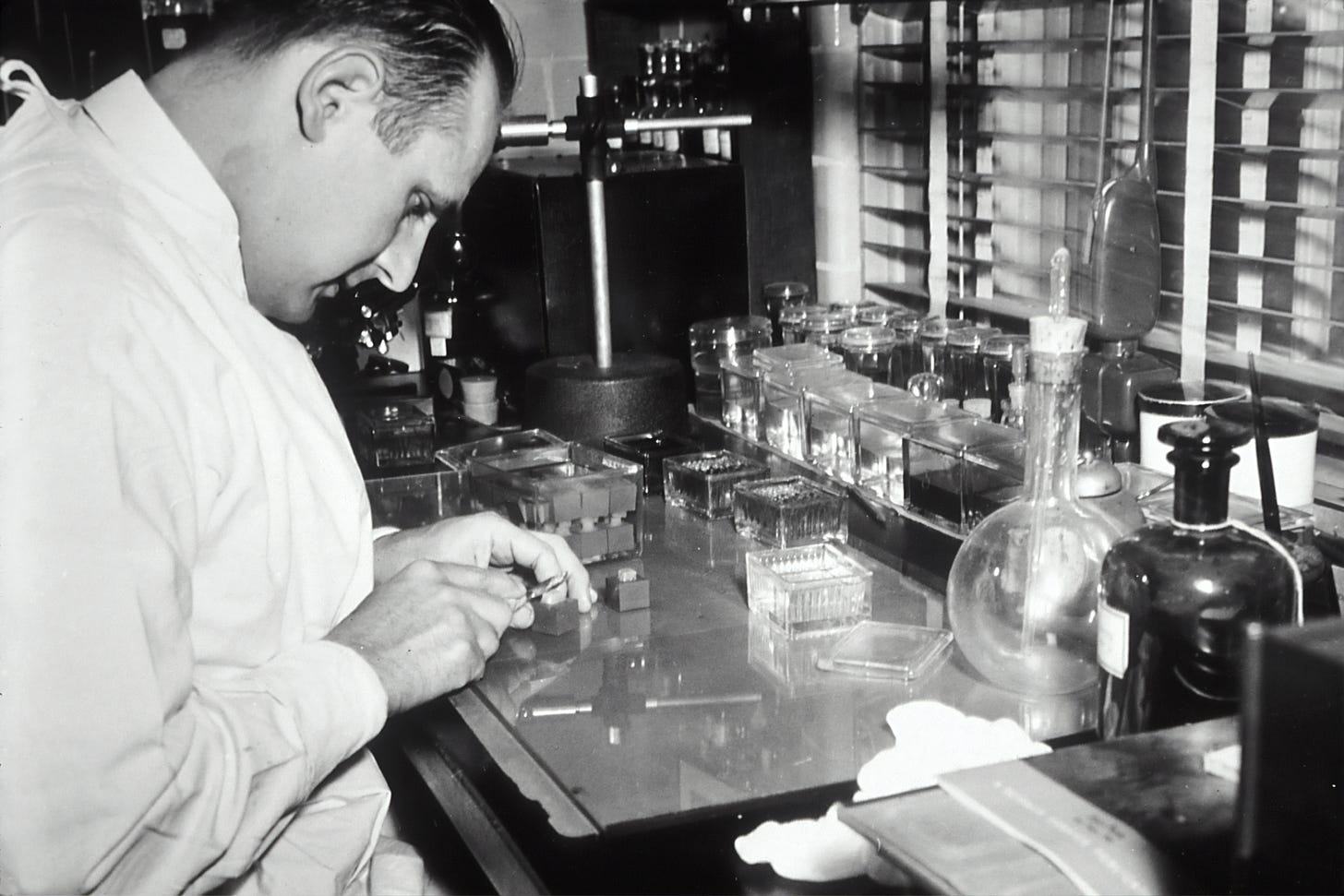I am a scientist. I studied the tings. Measured them, quantified them, all for the sole purpose of answering a question. To be exact—my area of focus was population genetics and the application of the geomorphic tropic hypothesis model in arctic watersheds. Like it or not, this is how scientific query works.
None of my exploration into the mathematical basis for evolutionary theory included my opinion. There were no rants or digressions into religious ideology or whispers of conspiracies. I relied on the scientific work of others to perform my own gathering of DNA, extraction of genetic material, sequencing of the DNA, and all other methods incorporated into my research.
You don’t need to be distracted by the cacophony of noise and misinformation swirling around you. The universe still works the same. Facts still exist. Scientific query helps to differentiate the signal from the noise. None of this means we can not be curious.
We consume data visually and audibly without much thought. Access to data often brings to mind firewalls, subscriptions, and for lack of a better word in this context — literacy.
The twitter data community has been discussing accessibility. My interpretation of “accessibility” in this context includes more than just being able to access the data stored in large databases or warehouses. I am thinking about visual impairment, varying scales of cognition, and perhaps a lack of awareness of the signals we use when communicating about data visually. Think pre-attentive attributes for example.
I teach workshops and speak about datability. How proficient you might be today and where you might be able to improve your skills. I prefer datability to data literacy as I am not a fan of the notion of data illiteracy. We all create, analyze, and generate data. What we need are innovative ways to expand our awareness and sophistication.
Dear reader — I give you Loud Numbers.
Loud Numbers is a data sonification podcast, created by Duncan Geere and Miriam Quick. Data sonification is the process of turning data into sound, and we take it a step further by turning those sounds into music. In each episode, we introduce a data story, explain how we sonified it, and then play the sonification we’ve created.
As someone constantly looking for unique ways to tell data stories and an avid podcast listener I selected this episode below for you to enjoy. I want you to experience this in your own unique way but I also want to make certain you will give it a listen so here is an introductory backstory—intentionally limited. You will (and should) need to click to listen to the auditory gem.
Tasting Notes
Can you hear a taste? We think you can. Tasting Notes is a data-driven musical representation of the taste of beer, based on scores compiled from beer expert Malin Derwinger. For this data sonification, we asked Malin to look at, smell and taste ten different beers and log her findings using a unique beer scoring system she has developed. Then we turned those taste scores into ten short pieces of music that mirror the sensory experience of cracking open a bottle and taking a swig.
Taste is complex, and so is this sonification. Each of the ten beers is based on ten different scores that reflect its aroma, mouthfeel, taste and appearance. Aroma is made up of three components: malt, hops and fermentation. Mouthfeel is made of two: body and carbonation. Taste is made of sweetness, alcohol, acidity and bitterness.
I listen to podcasts while running and find many of the musical scores of data to be upbeat and fun. And who knew there were sommelier’s of beer? Actually called a cicerone.
The cautionary tale here is to not be an empty vessel. Think of the reverberations and clanging without any distinct purpose. Much better to pour a nice Russian River IPA—Pliny the Elder and begin your own data story…
Workshops
If you would like to be on the list for the next series of data workshops you can send an email here, bonny@datalchemy.io
We have a few entry level workshops planned along with introductory geospatial and data storytelling in the works. Individual tickets will be $25 but there is no cost simply to be notified when registration is live.
Bundles will be available for Substack readers…







